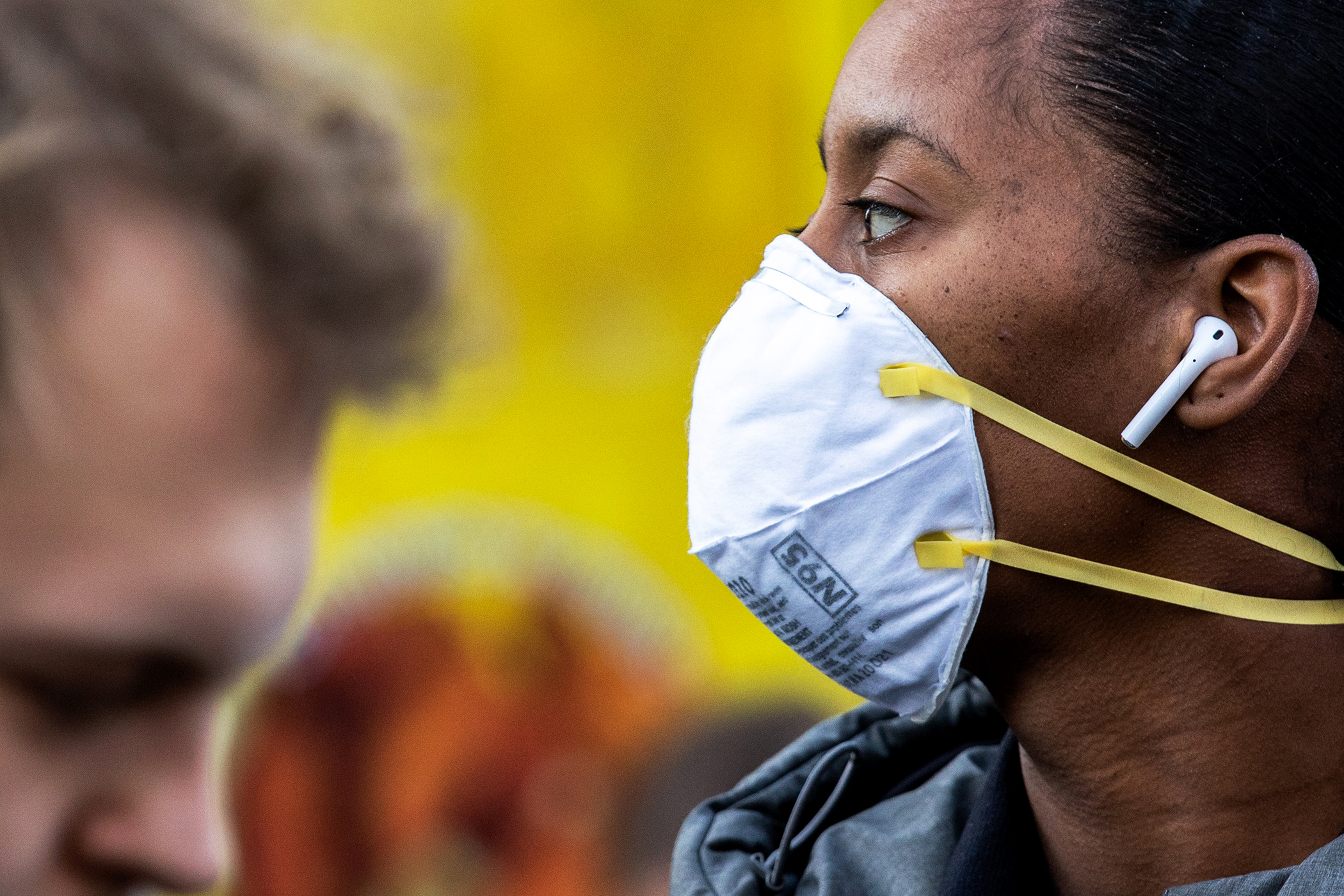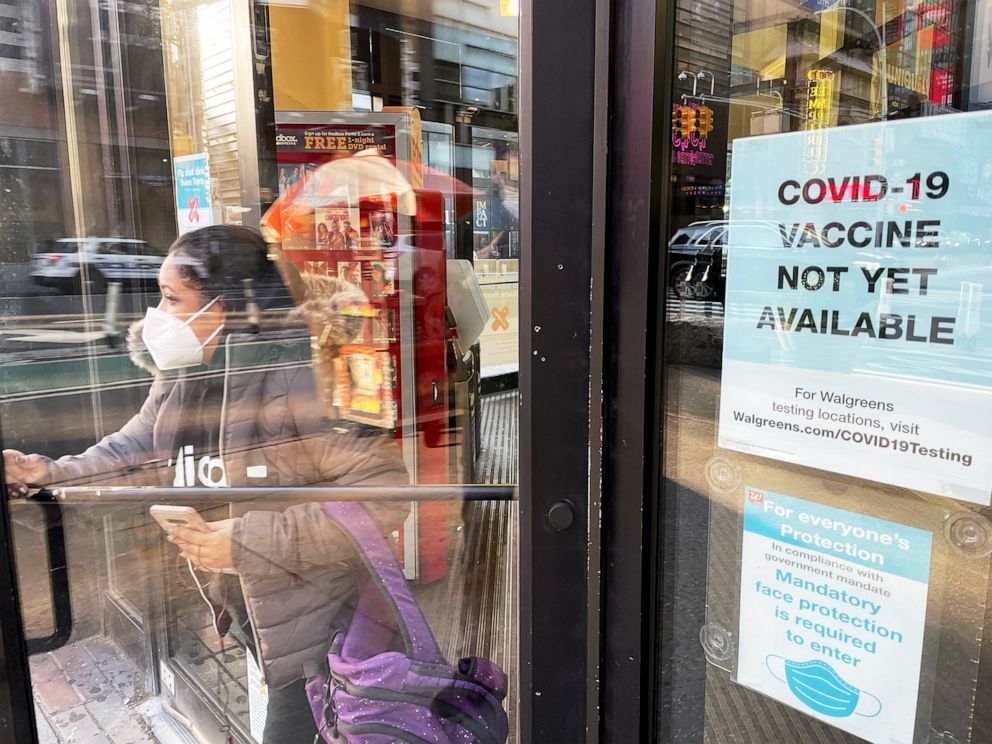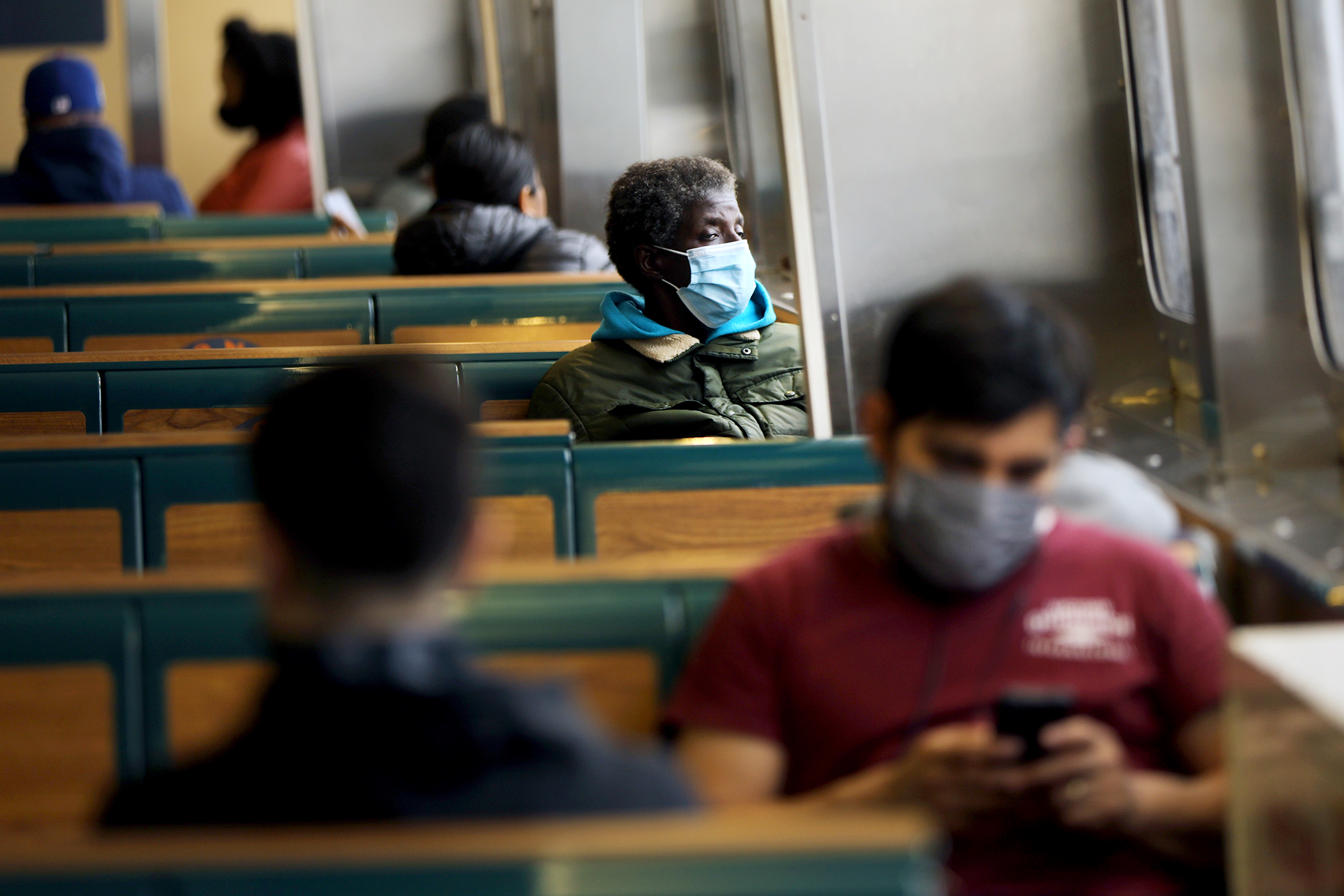How to talk to others about COVID masks
"Treat the person like a colleague. ... Navigate the difference of opinion."
Many of us have probably seen someone in passing who wasn't wearing a mask, but you probably didn't stop that person to ask why. But what about your friends and family, or your neighbors?
ABC News spoke to experts who offered science-backed tactics to help encourage others to adopt a behavior shown to help stop the spread of COVID-19, which has killed more than a quarter million Americans.
Earlier in the pandemic, the messaging on masks was mixed, but months later, doctors, health care workers, scientists and government officials are strongly encouraging people to cover their faces whenever they're around others.

Along with frequent and thorough hand-washing, avoiding others when you're sick and social distancing, wearing a mask reduces droplet spray and could save lives -- and here's how to get more masks on more faces.
Find common ground
While some Americans might downplay the pandemic, we've all had shared experiences shaped by this new reality. When starting a conversation with someone who's skeptical of the latest science and public health guidelines, try to find common ground.
"It's understandable to feel the fatigue of the pandemic -- connect that to a preventable measure, and then start the conversation," said Dr. Panagiota Korenis, vice chairman of psychiatry at Bronx Care Hospital and an associate professor of medicine at the Albert Einstein College of Medicine.
Korenis added that it's all about "normalizing the experience and anchoring people."
Use curious inquiry
Psychiatrists and psychologists interviewed by ABC News explained that it's perfectly normal for many people to resist adopting new behaviors.

Adopting new cultural norms -- widespread mask-wearing, staying at least 6 feet away from loved ones -- could be a lengthy process for some.
Be curious, not scornful, experts said.
"Start with inquiry, and not in paternalistic way, not from a place of 'No' or 'You must,'" explained Korenis.
If the person you're talking to is reluctant to adhere to health guidelines, ask them why they feel that way.
"Lots of things influence our decisions to do something: how we process risk or threats, the emotional state we are in, what our underlying understanding of consequences is or what people around us are doing," said Dr. Neha Chaudhary, a child and adolescent psychiatrist and faculty member at Harvard Medical School and Massachusetts General Hospital. "If someone is resistant to doing something, the best place to start is to understand their resistant behavior -- understanding their perspective and motivations is the starting point in behavior change."
Clarify misconceptions
The Centers for Disease Control and Prevention and the World Health Organization initially distributed conflicting statements on wearing masks, which led to confusion. But now, researchers and health professionals agree: masks are effective.
Dr. John Brownstein, an epidemiologist at Boston Children's Hospital and a contributor to ABC News, said that those mixed messages earlier in the pandemic -- many spreading on social media -- understandably sowed mistrust.
"Much can be misunderstood -- there can be a baseline mistrust of government and industry," Brownstein said. "There is just so much content and confusion out there. Misinformation, especially negative or even fringe information, gets mainstreamed very quickly on social media platforms, which can have very negative consequences."

Show compassion
As we head into the holiday season, we can encourage our friends and family and even acquaintances to help keep each other safe -- the pandemic has affected everyone.
"Speak with compassionate statements, engaging others in the discussion," Korenis said. "Understand where the person is coming from."
Stay calm, stay cool
Do everything you can to avoid being triggered or angry at people who refuse to wear masks or adhere to social distancing guidelines.
"Start a conversation -- do not lead with the data, it can be too aggressive," Korenis explained. "Treat the person like a colleague in a collaborative and productive discussion. Navigate the difference of opinion."
"I tell my patients," Chaudhary added, "that the best thing you can do when confronting a loved one is to calmly share where you are coming from and how an action -- or inaction -- makes you feel. Sometimes people are unlikely to change their behaviors for themselves, but might be likely to do it for people they love."
Dr. Catherine Soeung, a psychiatry resident at Bronx Care Health System and the Mount Sinai Icahn School of Medicine, is a contributor to the ABC News Medical Unit.




